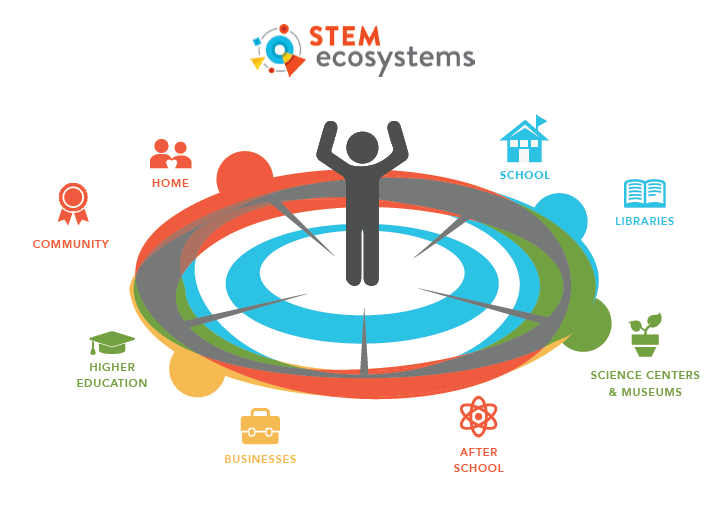About
About the Initiative
The Power of We
 Ecosystems often do what no one partner can do alone.
Ecosystems often do what no one partner can do alone.
Since 2015, the STEM Learning Ecosystems Initiative has cultivated and supported local, regional and state STEM Learning Ecosystems from across the globe. The initiative is designed for communities to become active members within a national network of their peers and STEM leaders.
STEM Learning Ecosystems Community of Practice
Built on over a decade of research, the STEM Learning Ecosystems Community of Practice is a first-of-its-kind global collaboration of 114+ communities growing STEM collaborations that prepare all people for emerging opportunities. More than 70 million learners find themselves going from cradle to career within the space of a STEM Learning Ecosystem.
What is a STEM Learning Ecosystem?
Keeping the learner at the center, a STEM Learning Ecosystem establishes critical community partnerships to identify and fill local STEM learning and workforce development needs.
Partners include schools, afterschool and summer programs, colleges and universities, businesses, government, community-based organizations and more to connect learning pathways for young people, close opportunity gaps, stimulate economic growth, and address talent shortages.
Ecosystems are a grassroots approach to connecting the dots within a community and gathering partners to create new possibilities. Based on a shared interest, they develop a common language that benefits the end-users within the system.

